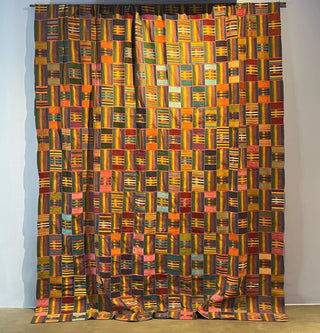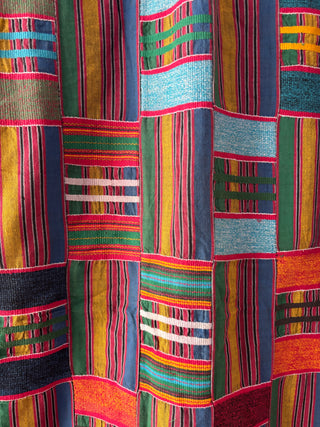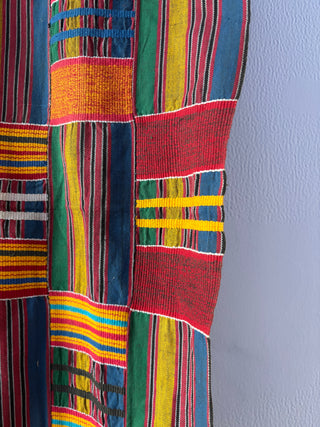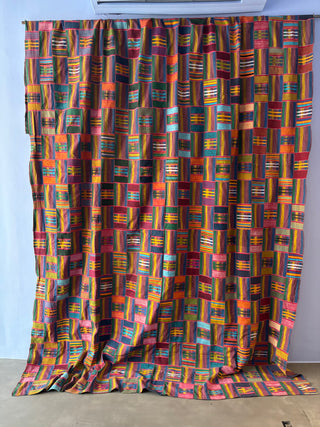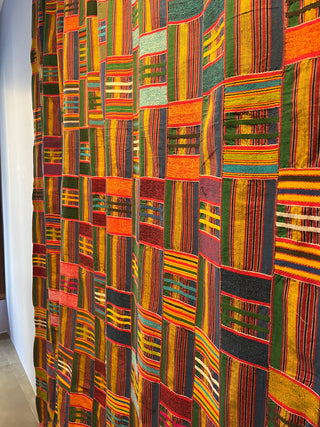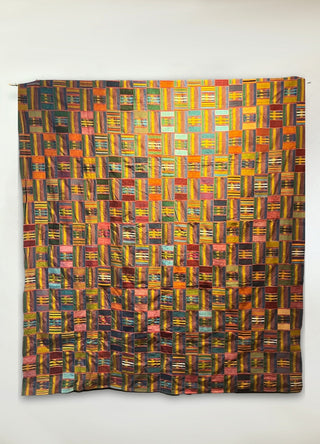African Handmade Collectibles
Medium : Hand spun cotton.
Size : 78.7 x 129.9 inches
Weight: approx. 1 to 2 kg
Ewe textiles are highly regarded among collectors, prized for their sophisticated use of colour and complex weaving techniques. They are made by the Ewe (pronounced ev-ay) people who are thought to be originally from Nigeria and migrated in the late-17th century to Togo, Ghana and the Benin border. Ewe weavers utilise an almost identical form of the narrow-strip loom to that of the Asante, and there is considerable evidence to suggest mutual influence between the weavers of the two traditions, as might be expected from the long history of contacts, both through trade and conquest between their peoples. However, Ewe weaving has also been influenced by and exercised an influence on other neighbouring peoples, including the Fon of the Benin Republic and, most recently, the Yoruba of Nigeria.
Care instructions :
Display & Handling
Handle with clean, dry hands or gloves when moving the frame.
Lift the frame by both sides, avoid holding by the top edge or decorative elements.
Display in a stable, dry environment, away from: Direct sunlight, High humidity, Extreme temperatures or air vents
Cleaning
Do not clean the textile directly.
Dust the textile using a soft artist’s brush, do not use cloths, sprays, or vacuums.
Never use water, solvents, or cleaning agents on the textile or frame.
Storage
Store framed textiles upright, in a dry, climate-controlled space.
Wrap in acid-free paper or soft cloth if in storage, avoid plastic wraps that trap moisture.
Keep away from stacked items that may press against the textile or frame.
Contact us if you are interested in this piece
Adding product to your cart

